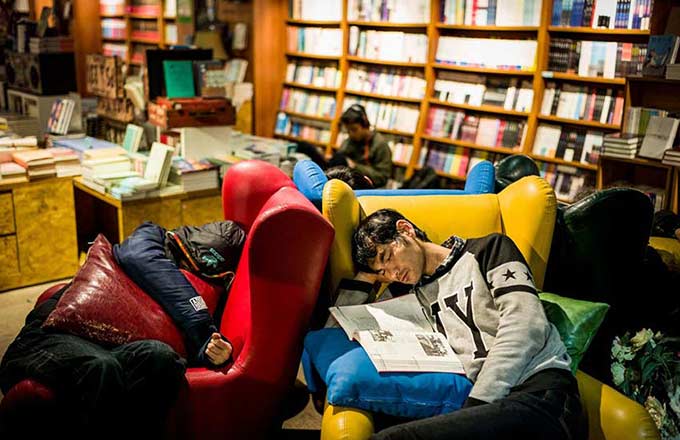Shijiazhuang halts operations of pharmaceutical manufacturers
China's largest pharmaceutical industrial base has temporarily shuttered all companies in the sector to control pollution.
"All medicine producers cannot resume operations without permission," read an order released on Nov 17 by the government of Shijiazhuang, capital of Hebei province.
The move was one of the measures introduced to reduce the average annual concentration of PM2.5 - small particulate matter less than 2.5 micrometers in diameter that can be harmful to the lungs-by 10 percent from last year's level.
According to the order, the measures will last until the end of the year.
Shijiazhuang has experienced heavy smog on six occasions since late September, lasting for more than 30 days in total, with the Air Quality Index frequently exceeding 300, according to the province's meteorological bureau.
An AQI reading above 300 is the most severe level in the six-tier system.
In September and October, the city was ranked as having the worst air quality among 74 cities monitored by the Ministry of Environmental Protection.
Industrial emissions in the city, including those from the production of pharmaceuticals, construction materials, petrochemicals and metallurgy, accounted for 25.2 percent of the sources of PM2.5, according to Shijiazhuang Environmental Protection Bureau.

A laboratory technician at Shijiazhuang Yiling Pharmaceutical Co, which mainly makes traditional Chinese medicine, said most of the pharmaceutical industry's pollution comes from the process of making active pharmaceutical ingredients.
"The process involves using organic solvents and producing byproducts, which are polluting," said the technician, who asked for anonymity.
More than 100 pharmaceutical companies are involved in the industry in Shijiazhuang, including six listed ones. Almost half make ingredients, according to Hebei Food and Drug Administration.
Huabei Pharmaceutical Co, which is listed on the Shanghai Stock Exchange, has suspended operations at its headquarters and four branch companies.
Suspending production of pharmaceutical ingredients would reduce profits by about 50 million yuan ($7.2 million), the company said.
Shineway Pharmaceutical Group, China's largest manufacturer of modern Chinese medicine injections, has also halted production, though its operations are almost pollution free, said Yu Weizai, a publicity manager for the company.
"The halt in operations will cause a great deal of trouble for public companies such as Shineway, which is listed on the Hong Kong Stock Exchange," said Yu, adding that the company had submitted an application to the government to resume production.
About 1,000 of its workers have been affected by the halt in production, though the company has enough products in stock to meet market demand, Yu said.





















